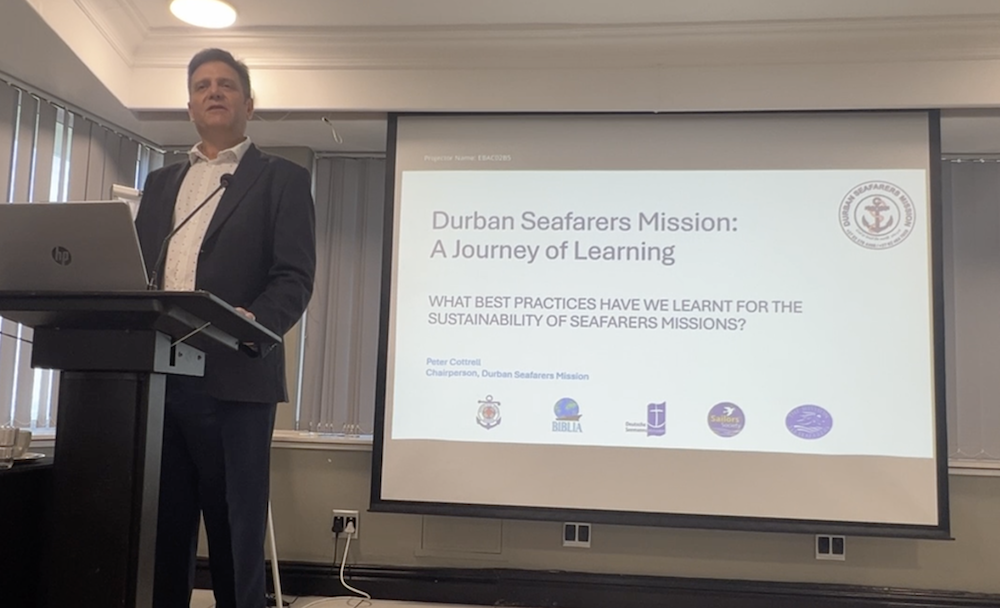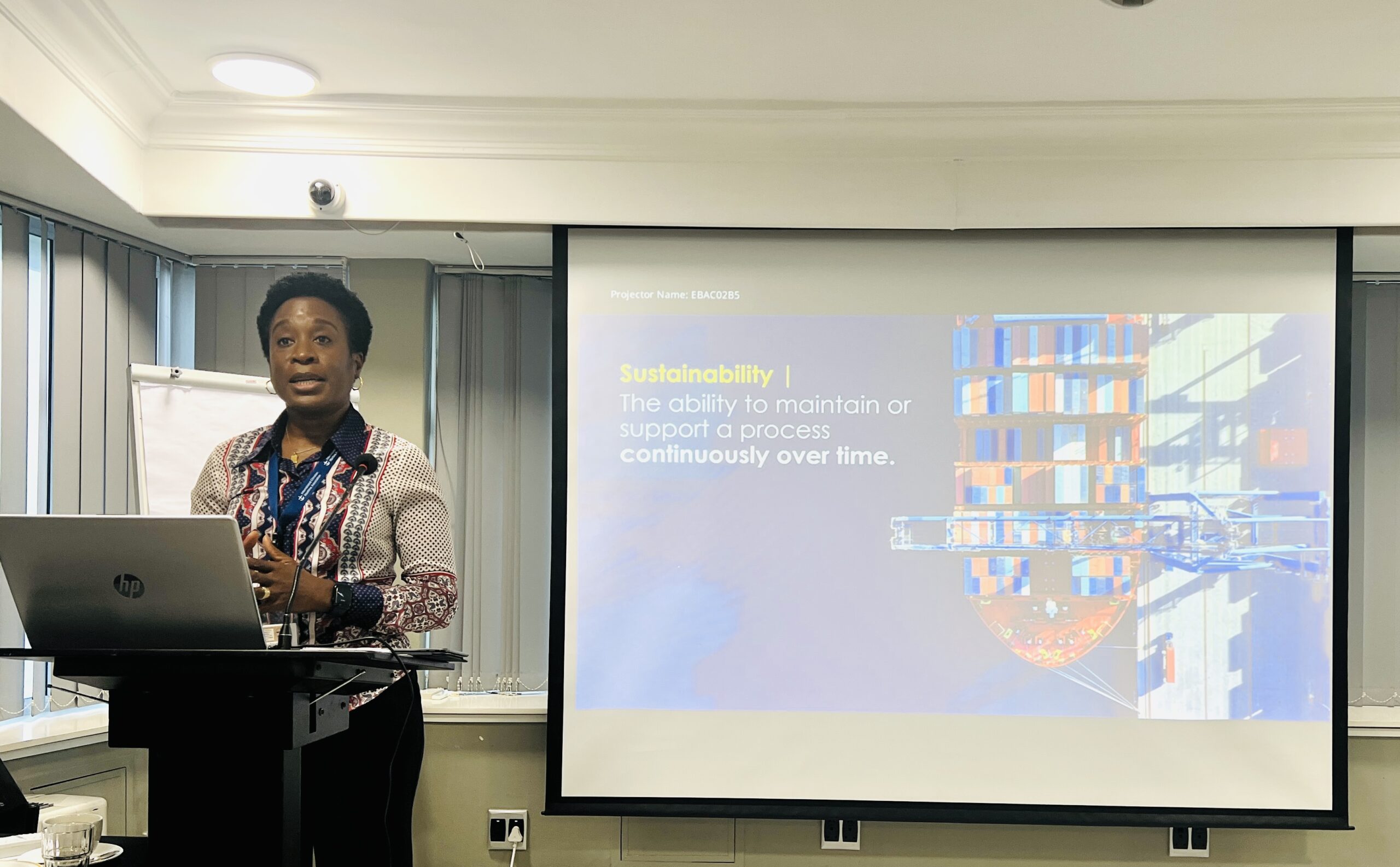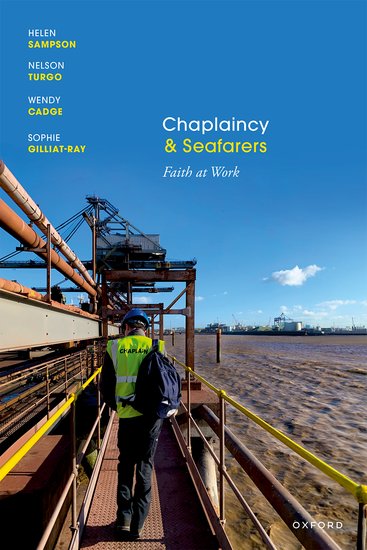By Rev Un Tay, Senior Chaplain, Mission to Seafarers – Sydney, Australia
Shopping for Seafarers
Many of you know by now that despite the lockdown we have been very busy serving the seafarers calling at our Port. Though we have stopped our bus pickup services at the different terminals, we have commenced a new type of services. One in particular is that seafarers message us or email us a list of items they need and then one of us will then go shopping with the list and deliver it to the gangway for the crew. We have become part of the supply chain and deliveroo! It seems this is the new norm in caring for seafarers. Our staff members take turns buying mainly grocery and personal care items such as razors or body wash and also the small joys of life like Krispy Kreme and Hungry Jack Burgers, electronic goods and items to keep them fit and entertained on-board.
Often we are not able to buy exactly what they want due to different variations such as colour, size, configurations or items out of stock. We would then have to connect with them to inform them of alternatives. This back-and-forth is why shopping for seafarers is so time consuming. But our chaplains are committed to serve and will continue to serve seafarers at this difficult time. Many seafarers have described that they feel “imprisoned” – no freedom, no access to land like you and I, and obviously, no access to shop for personal necessities or even have a cuppa! We must not forget those who serve us and working tirelessly to bring the necessities of life to our door step and for our convenience. Many of them are finding it tough – physical, emotional, mental and spiritual health are at boiling point. We are so blessed compared to them.
Attending to stranded seafarers
I urge you to pray for a Chinese seafarer. Since I speak his language, I was asked to pick him up at our domestic airport and help him check into his hotel. While having dinner with him, he asked me whether I heard of any news of him on board the vessel? I replied, “No.” Surprisingly, he proceeded to tell me his story that when the vessel was out in the open seas, far away from the coast so that no rescue helicopter could reach during emergency, he attempted suicide by consuming 3 boxes of pain killers. At that point, to him there was “no tomorrow” and without a tomorrow, there was no hope. Since it did not have an immediate effect on him, he took another box and starting bleeding while passing motion and took a knife to cut his wrist. Fortunately, the knife wasn’t sharp enough to do its job.
Soon after the incident, he was found by a colleague and was rescued. Thank God for that. But for the vessel to arrive at her destination at Mackay, it took another 2 weeks! During that time, he was under observation and supervision by officers and crew. Imagine how stressful it was for all on board.
Upon arrival at Mackay, he was discharged and admitted to the hospital for treatment. Being alone and without the language to communicate, he was restless and requested to be discharged from hospital after seven days of treatment and looking forward to be repatriated. Since he could not fly home to China via Taipei due to Chinese regulations, he was now stranded in Sydney.
Since his arrival in Sydney, I have been providing pastoral care and visit him two to three times a week. One evening he called me at 9:30 p.m. On the phone, he told me that there was an emergency and that I should please report it to police. I was shocked to receive that call, thinking that the worse might have happened to him. Immediately, I rushed to his hotel room to attend to him. Upon arrival at his hotel room, I found him crouching on the sofa seeing with his whole body literally shaking, with a blank look in his eyes and stammering in his speech. After much struggle listening to his sharing, I calmed him down and assured him that he was in a safe environment. Seeing him recovered and in a better state, I left the hotel at 1:00 a.m.
For the past three weeks, we brought him and other seafarers waiting repatriation to visit Harbour Bridge, the Opera House, Darling Harbour – Australian National Maritime Museum, our lovely beaches, shopping complexes and our Mission. I stand in to help translate for the agent, the hotel staff, and the immigration officer. We provided some reading materials in Mandarin, continued to provide support such as helping him to buy his prescription medicine, calling him and bringing him out to visit places of interest to alleviate his anxieties, fears and traumas. We also helped him get a haircut. His mental health has improved tremendously since I first met him and he is looking forward to be repatriated and be reunited with his family. He told me that his sister is getting married in August. I hope he can be home with his loved ones soon.
“Nature Therapy”, “Retail Therapy” & “Social Therapy”
Our help of that one seafarer is similar to that we have been doing for other stranded seafarers. For the past 3 months, our strategies in caring for stranded seafarers are “Nature therapy,” “Retail therapy,” and “Social therapy.” What do we mean by that? Because of lockdowns, seafarers stuck in Sydney spend 24/7 in their hotel rooms, in a very confined space where they also eat their meals. They have no means to travel around and are afraid of getting lost and of course, with COVID-19 still prevalent, they feel safe and protected in their hotel rooms. But how long can one be cooped up in a hotel room and remain sane?
As part of pastoral care, I invite them out and offer to bring them to visit our lovely city, to see our beaches and parks. I bring them to La Perouse, Coogee, Maroubra, Bondi and Watson Bay and to Kurnell to visit Captain Cook’ s memorial. When they are out, you see how happy and liberated they are and how they appreciate nature and the wonderful creation of our Creator and enjoy the space provided which they can never experience in their hotel rooms. This is what I meant by “Nature therapy!”
Next to “Nature therapy” is “Retail therapy.” Seafarers love visiting shopping complexes. Just to walk around, without buying anything and browsing through the shops, is therapeutic and good for their wellbeing! Of course, some do purchase items from the shops.
“Social Therapy” is also necessary. Being in lockdown in the hotel is absolutely “anti-social.” We are social beings, we need to socialise. By bringing the seafarers to our Mission or window shopping is to give them opportunity to socialise. As we accompany them, we walk and talk with them – socialising. We made them feel like part of the family. This also enables us to have greater opportunities to share the love of God!
Holding High The Beacon Of Hope
As chaplains at the Mission to Seafarers, Sydney, we are called to reach out to seafarers in need. At such a time like this pandemic, we are holding high the beacon of Hope to struggling, confined and traumatized seafarers. They need our love, our care, our concern, our hospitality, our prayers and our understanding. Our chaplains and volunteers have gone beyond our call of duty to shine that beacon of Hope to all seafarers calling at our shore and to show compassion to all! Remember us in your prayers.
Photo and text excerpted with permission from “MTS Sydney Updates – Wednesday, July 15, 2020 by Rev. Un Tay. Connect with the Mission to Seafarers – Sydney on Facebook here.





